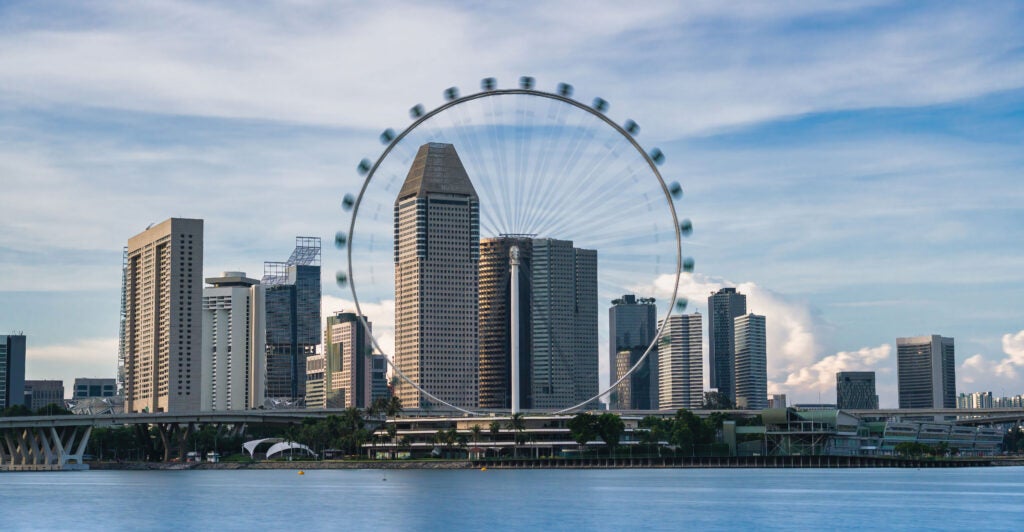The foundations of economic freedom have been declining around the world for three consecutive years, according to the 2024 Index of Economic Freedom, which annually assesses the economic governance and entrepreneurial environments of 184 countries.
Despite the disappointing downward trend of global economic freedom, the overall findings of the 2024 index, released Monday by The Heritage Foundation, are unmistakable: Preserving and further enhancing the institutions of economic freedom is the key to economic empowerment and societal flourishing. (The Daily Signal is the news outlet of The Heritage Foundation.)
In its 30th anniversary edition, the 2024 index provides a unique opportunity to step back and contemplate the importance of the critical interplay of freedom, opportunity, and prosperity. Since 1995, when Heritage published the first edition of the index, the world has undergone countless tests of amplifying the benefits of economic freedom.
As Kevin Roberts, president of The Heritage Foundation, succinctly noted in his preface to the 2024 index:
To defeat progressive elites, we must defend the efficiency of free markets, but more importantly, the morality of free markets—the dignity they give every human person to create, serve and reap the fruits of his labor.
As the Index of Economic Freedom has comprehensively documented over the past three decades, countries that are committed to policies that safeguard and advance economic freedom consistently outperform others in economic resilience and prosperity.
Countries with lower economic freedom, on the other hand, are the ones that fall into economic stagnation and deteriorating social conditions.
The following are five notable takeaways from the 2024 Index of Economic Freedom.
- The 2024 index reveals a world economy that, taken as a whole, is “mostly unfree.” Regrettably, the global average score for economic freedom has fallen further from the previous year’s 59.3 and is now the lowest it has been since 2001, at only 58.6.
- Singapore has maintained its status of the world’s freest economy, demonstrating a high level of economic resilience. Switzerland is the world’s second-freest economy, followed by Ireland. Along with these three countries, Taiwan continues to be a free economy with an economic freedom rating of 80. As the world’s fourth-freest economy, Taiwan is an exemplary free-market democracy.
- Especially troublesome is the continuing decline of economic freedom in the United States, whose score plummeted to 70.1, its lowest level ever in the 30-year history of the index. The U.S. is now the world’s 25th-freest economy, with the Biden administration’s misguided policies corroding America’s economic freedom. The cost, size, and intrusiveness of big government have resulted in mounting deficits and debt burdens, undermining the overall fiscal health and long-term competitiveness of the U.S. economy.
- Globally, fiscal soundness has deteriorated significantly. Rising deficits and mounting public debt in many countries have undermined and will likely further undercut their overall productivity growth and ultimately lead to economic sluggishness, rather than vibrant growth.
- Economic freedom correlates significantly with overall well-being, which includes such factors as health, education, the environment, innovation, and democratic governance. On these critical public policy implications, it should be kept in mind that economic freedom—not the environmental, social, and governance agenda—makes America and the world cleaner, safer, and better governed. The true path to ensuring ESG improvements lies in focusing on policies that enhance economic freedom.
In the long run, the proven pathway to revitalize and sustain economic livelihoods most meaningfully across the board is by restoring what we know has worked everywhere it has been tried for decades.
Nation-states should leave individuals’ economic freedom in their own hands.
As Heritage’s Roberts emphasized in the 2024 index:
We are at a crossroads and must choose between self-governance, human dignity and ordered liberty or a society run by the managerial elite with no room for dissent or responsibility. One path leads to prosperity; the other leads to ruin.
More than ever, economic freedom—which calls for committed adherence to the pillars of the rule of law, limited government, regulatory efficiency, and market openness—is critical to generating opportunities for people to work, produce, save, and prosper while enhancing the nation’s overall capacity for greater economic development, prosperity, and security.
The months ahead present necessities and unique opportunities for America and other willing countries to restore economic freedom buttressed. Indeed, 2024 should be the year to begin pursuing and implementing policies that put our freedom, prosperity, and security first for a better future.
Have an opinion about this article? To sound off, please email letters@DailySignal.com and we’ll consider publishing your edited remarks in our regular “We Hear You” feature. Remember to include the URL or headline of the article plus your name and town and/or state.
